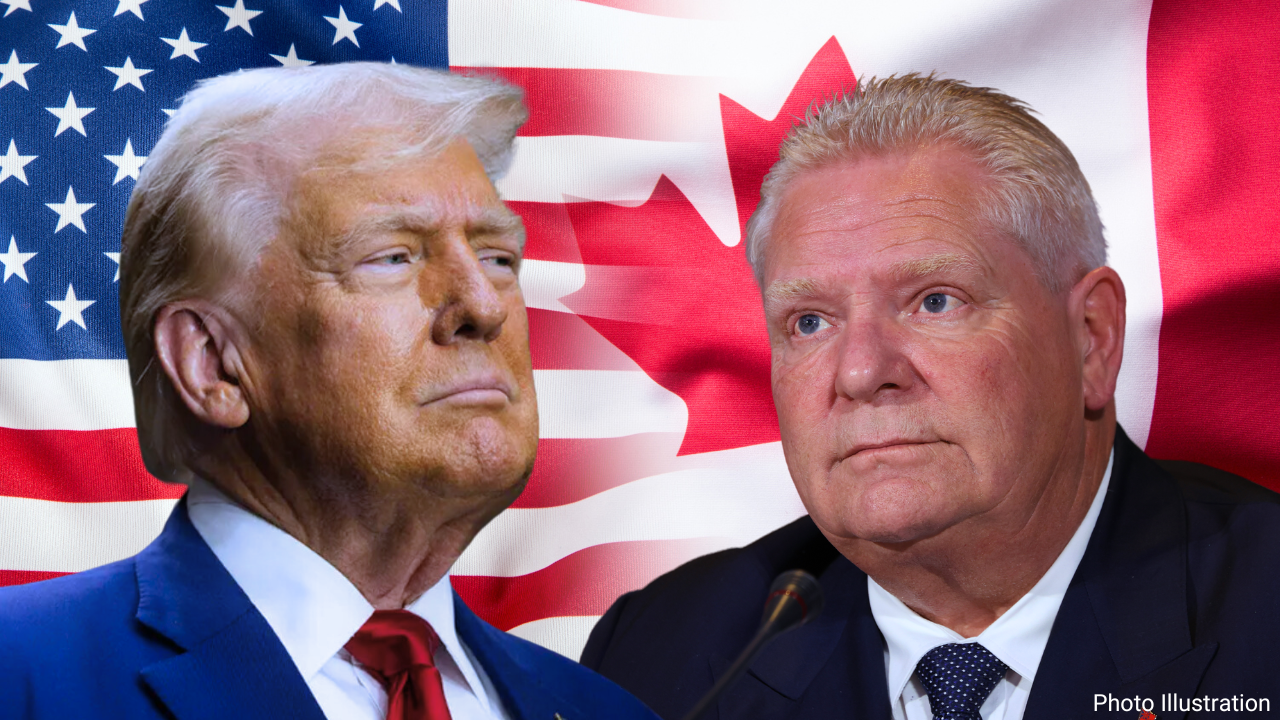Ontario Premier Dismisses Trump’s Annexation Comments: “Canada Is Not for Sale”
In a striking response to former President Donald Trump’s recent remarks regarding the possible annexation of Canada, Ontario Premier Doug Ford has firmly asserted that “Canada is not for sale.” This statement not only underscores the ongoing tension in U.S.-Canada relations but also raises significant questions about national sovereignty and identity. The comments made by Trump, which many interpreted as flippant, have ignited a wave of reactions from Canadian officials and citizens alike, emphasizing the importance of respecting borders and national integrity.
The Context of Trump’s Remarks
Trump’s comments came during a speech where he discussed various geopolitical issues, suggesting that Canada, with its vast resources and strategic location, could be perceived as a desirable acquisition for the United States. While his statements were likely intended to provoke thought and discussion, they were met with immediate backlash from Canadian leaders and citizens. Trump’s history of controversial statements, particularly around national identity and borders, has a long-standing effect on U.S.-Canada relations, which have historically been characterized by mutual respect and cooperation.
Ontario Premier’s Response and Its Implications
Premier Doug Ford’s response was swift and unequivocal. He stated, “Canada is not for sale,” a declaration that resonates deeply with Canadians who value their nation’s sovereignty. This response serves not only to dismiss Trump’s comments but also to reaffirm the independence and worth of Canada as a nation. Ford’s statement reflects a broader sentiment among Canadians who feel a strong attachment to their national identity and an unwavering commitment to their sovereignty.
National Identity and the Sovereignty Debate
The issue of sovereignty is particularly poignant in Canada, a nation that prides itself on its multiculturalism and rich heritage. The concept of being “not for sale” transcends mere property; it encapsulates the essence of what it means to be Canadian. In a world where globalization often blurs national lines, the importance of maintaining a distinct national identity is paramount. Canadians have fought hard for their autonomy, and any suggestion otherwise can evoke strong emotions.
Ford’s comments highlight a critical aspect of this debate: the need for Canadians to assert their independence in the face of external pressures. The annexation comments by Trump not only threaten the idea of Canadian sovereignty but also raise concerns over how Canadians perceive their relationship with their southern neighbor. The response from Ford and other Canadian leaders is indicative of a collective determination to stand firm against any notions that undermine their national integrity.
The Broader Implications for U.S.-Canada Relations
U.S.-Canada relations have been characterized by a complex interplay of cooperation and tension. Historically, the two nations have worked closely on trade, security, and environmental issues. However, Trump’s comments have the potential to strain these relations, especially given the current climate of political polarization in the United States. Canadian leaders have expressed concerns that such remarks could lead to a deterioration of trust between the two countries, which could have long-lasting effects on various collaborative efforts.
Trade and Economic Considerations
Economically, Canada and the United States are deeply intertwined. The two countries share one of the largest trading relationships in the world, with billions of dollars exchanged daily. Any notion of annexation could disrupt this economic partnership, leading to uncertainty in trade agreements and economic policies. Canadian businesses, which rely heavily on the U.S. market, may face challenges if political tensions escalate.
- Impacts on Trade Agreements: Existing trade agreements, such as the United States-Mexico-Canada Agreement (USMCA), could be jeopardized if relations sour.
- Economic Stability: Canadian markets may experience volatility as investors react to geopolitical tensions.
- Cross-Border Cooperation: Collaborative efforts on issues like climate change and security could be hindered.
The Public’s Reaction to Trump’s Comments
The public reaction to Trump’s remarks has been overwhelmingly negative. Many Canadians took to social media to express their outrage, emphasizing their pride in their national identity and the importance of sovereignty. Grassroots movements advocating for Canadian unity have gained momentum, showcasing the collective spirit of Canadians who are determined to protect their nation from external threats.
Voices from the Ground
Citizens from various backgrounds have spoken out against the idea of annexation. Indigenous leaders, in particular, have highlighted the historical injustices faced by their communities, arguing that any discussions about annexation overlook the complex realities of Canadian history. The sentiment among many is that Canada is a diverse and vibrant nation that should not be considered as a mere extension of the United States.
Looking Ahead: Strengthening Canadian Identity
In the wake of these comments, there is a renewed focus on strengthening Canadian identity and sovereignty. Political leaders, educators, and community organizers are engaging in discussions about what it means to be Canadian in today’s world. Initiatives aimed at promoting Canadian culture, history, and values are gaining traction, encouraging citizens to take pride in their national identity.
Promoting Canadian Values
Efforts to promote Canadian values include:
- Education: Schools are emphasizing Canadian history and the importance of sovereignty in their curricula.
- Community Engagement: Local organizations are hosting events that celebrate Canadian heritage and foster a sense of unity.
- Political Advocacy: Citizens are encouraged to engage with their political representatives to advocate for policies that protect Canadian sovereignty.
Conclusion
Ontario Premier Doug Ford’s emphatic dismissal of Donald Trump’s annexation comments underscores a vital aspect of Canadian national identity: the unwavering commitment to sovereignty. As the world becomes increasingly interconnected, the importance of maintaining distinct national identities becomes paramount. The response from Canadian leaders and citizens alike serves as a reminder that Canada is a proud nation, rich in diversity and history, and firmly stands on its own. With ongoing efforts to promote Canadian values and strengthen national identity, Canadians are poised to navigate future challenges with resilience and unity.
See more BBC Express News

